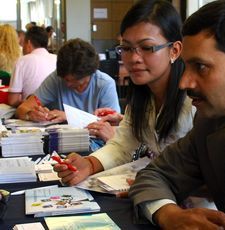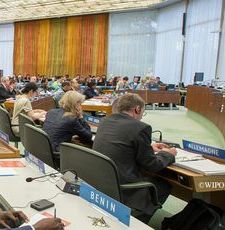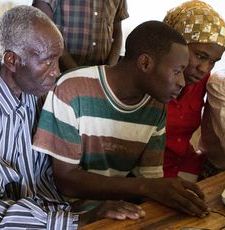ABOUT THE RESOURCE
OpenAIRE project harvests, enriches and stores the metadata of open access (OA) scientific datasets and deploys innovative underlying technical structures to support the management of and inter-linking between associated research data. This interlinking and reuse of research is seen as crucial to growth and innovation in Europe and supports an infrastructure for open science, for which interoperability is the key. As substantial technical infrastructures continue to develop, it is clear that this growth has to be complemented by networking activities that give out clear, simple messages, and support the very people the system is built for: researchers and scientists.
Supporting the OA policy of the European Commission (EC), OpenAIRE is moving from a publication infrastructure to a more comprehensive infrastructure that covers all types of scientific output, funded by the EC, and widening to other European funding streams. It harvests content from a range of European repositories and ensures raised visibility of OA content, as well as links to project and funding information. In order to ensure interoperability from these research infrastructures, a common approach is needed to adhere to existing and future guidelines. In this context, an integrated suite of guidelines have been developed. The presentation briefly outlines the OpenAIRE Guidelines: Guidelines for Data Archive Managers, for Literature Repository Managers and CRIS Managers.
By implementing all three sets of the OpenAIRE Guidelines, repository managers will be able to enable authors who deposit publications in their repository to fulfil the EC OA requirements, as well as the requirements of other (national or international) funders. In addition, it will allow the OpenAIRE infrastructure to add value‐added services such as discoverability and linking, and creation of enhanced publications.
This presentation also showcases ZENODO – a new simple and innovative service that enables researchers, scientists, EU projects and institutions to share and showcase multidisciplinary research results (data and publications) that are not part of the existing institutional or subject-based repositories. ZENODO enables easy sharing of the long tail of small research results in a wide variety of formats including text, spreadsheets, audio, video, and images across all fields of science; data curation and making the research results citable; easy access and reuse of shared research results.
This presentation was presented at the conference “Opening Science to Meet Future Challenges” that brought together diverse participants to enable an in-depth international dialogue focused on infrastructural, social, economic and legal aspects of openness (in particular, with regard to research data), aimed at a common understanding of how it should be provided in order to satisfy the public interest and meet the upcoming challenges.
The conference took place in Warsaw, on the 11th of March 2014. It was organised by the Centre for Open Science, which is a part of the Interdisciplinary Centre for Mathematical and Computational Modelling at the University of Warsaw.
SHARE / PRINT









